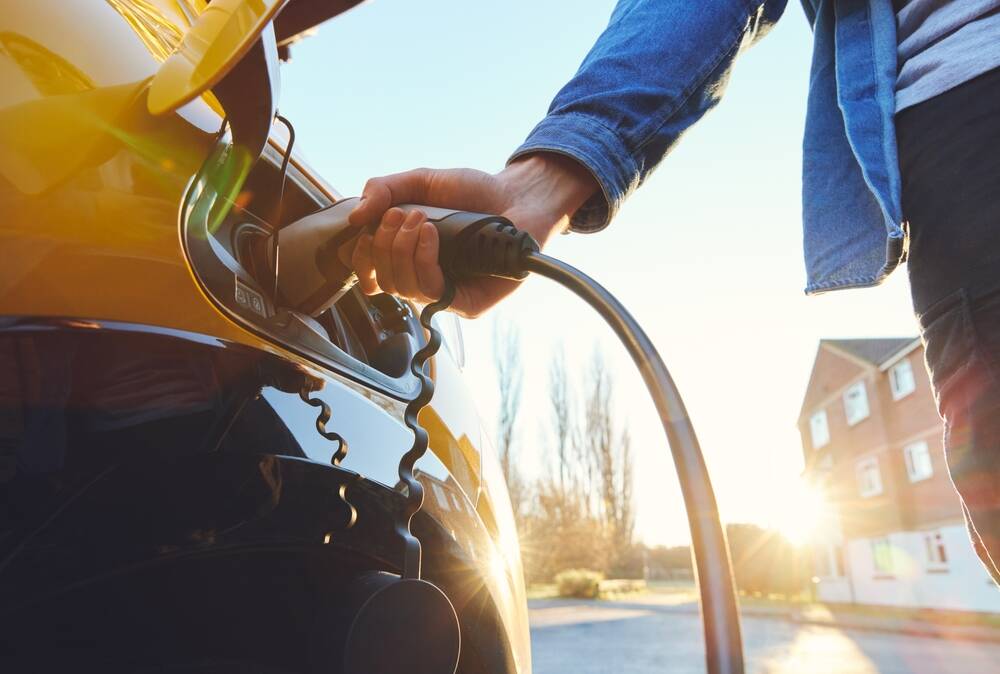- cross-posted to:
- hardware
- cross-posted to:
- hardware
This is going to change in pretty much a month. Car makers make more money selling combution engine cars, but emission guidelines are hard in 2025, hence they need to sell more EVs. So EV prices will drop and sales increase. That has been the case in the past as well. It is going to 37% plug in or so.
I’m really confused by this supposed EV slump. In the US maybe, because of Tesla being dominant and now falling out of favour with a lot of people, but that’s not the EU.
Data only goes up to 2023, but…
Further progress in the uptake of electric cars and vans was made in all 27 EU Member States in 2023. Electric vehicles accounted for 22.7% of new car registrations and 7.7% of new van registrations. In total, 2.4 million new electric cars were registered in 2023, up from 2 million in 2022. Registrations of new battery electric cars grew by 37%, while the number of newly registered plug-in hybrid cars fell by almost 4%. In 2023, a total of 91,000 new electric vans were registered, most of which were battery electric.
https://www.eea.europa.eu/en/analysis/indicators/new-registrations-of-electric-vehicles
That show BEVs steadily increasing and PHEVs flatlining, and I don’t see why 2024 would be particularly different.
Well, I may be cynical, but I’m asking two questions:
- Who owns media?
- What happens in a society when EV reach 90-95% market share? What happen when the last petrol station goes bust? Which infrastructure will follow?
I see a huge interest in not letting incumbent infrastructure fail. That’s what electrification is up against
What happens in a society when EV reach 90-95% market share? What happen when the last petrol station goes bust?
The same thing as when cars were first invented, before petrol stations existed: you buy fuel in cans from stores. They used to buy petrol from chemists in the 1900s, but I imagine that today/in future they’d be sold at hardware stores or ordered online.
I’m somewhat doubtful petrol stations will all go bust though; long-haul trucking really favors petrol/diesel, and by their very nature of having a long range, they don’t need the petrol stations to be that frequent. Especially since the infrastructure is already built, it just needs to be maintained.
Also, obligatory reminder that electric cars are not the solution: fixing car-centric cities so they’re more walkable and have decent train systems is the solution.
Long haulers usually prefer to gas up at their own private facilities to keep costs down, as I’ve understood it, using gas stations more as an emergency refilling. I’m not sure if that market is big enough to carry the entire infrastructure itself.
Construction is another big sector for diesel, but in both transport and construction there is a lot of work being put into moving the sector to electrification. Which is well, because given how fast the automotive market has turned change might be fairly quick.
There are other uses as well, but will they be able to carry the market? Driving the need for supertankers and trillions worth of investment in oil infrastructure with fuel cans at the chemistry shops? With rising production costs for big oil? I don’t know if I’m more relieved or more anxious about the idea…
Plug-in hybrid car registrations fell 7.2 percent for the month, and year-to-date volumes decreased 7.9 percent – meaning the vehicles now account for 7.7 percent of the car market, down from 8.4 percent in the previous year.
Hybrid electric vehicle sales, however, look a good deal more perky. The ACEA reported registrations for last month increased 17.5 percent, with a market share now at 33.3 percent, “exceeding for the second consecutive month petrol car registrations.”
Over 22% share from plug in vehicles overall. I’d be surprised if Hybrid category excludes plug in hybrids, dropping it to 25%. I’d be extremely surprised if people wouldn’t prefer a $1000 option for plug in for whatever non plugin hybrids they are buying. OTOH, there is a complete BS category of hybrid. F150 Hybrid in US has a battery size that is equivalent to a lead acid non hybrid, as an example.
EU just had an auto show for next year’s EV models which look great, and so would naturally stop intending EV buyers from buying these next months instead of waiting a bit. Maybe more Chinese competition soon. Geopolitical fuckery makes EU life difficult to forecast.
EU EVs still doing much better than US is the headline that could have been chosen.




